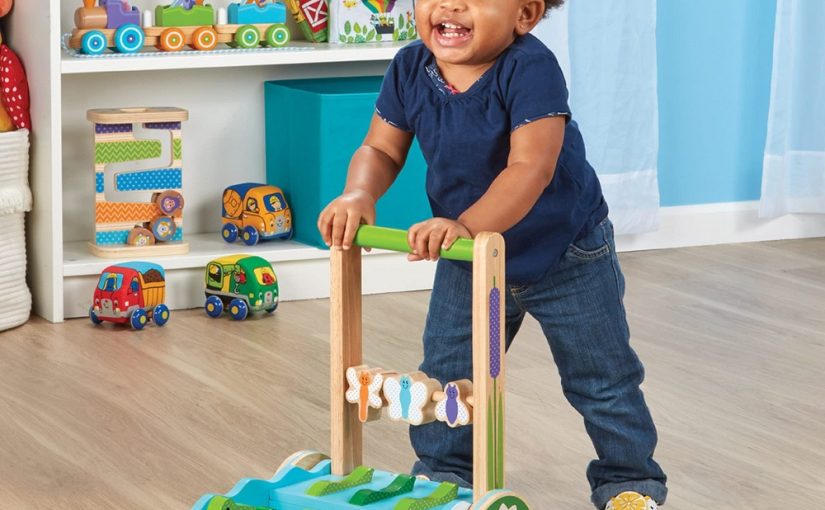When it comes to toddler development, playtime is not just fun; it is crucial for learning important skills. One of the key areas of development during these early years is fine motor skills. These skills refer to the small movements that use the small muscles of the hands and fingers. From grasping a crayon to stacking blocks, fine motor skills are essential for everyday tasks and later academic success. Interactive toddler toys can greatly aid in the development of these skills. In this article, we will explore a selection of the best interactive toys for toddlers that promote the growth of fine motor skills while making playtime engaging and enjoyable.
Understanding Fine Motor Skills
What Are Fine Motor Skills?
Fine motor skills involve the coordination of small muscle movements, mainly in the hands and fingers. These skills are necessary for tasks like writing, buttoning shirts, and manipulating small objects. Fine motor development occurs as toddlers explore their environment and interact with different objects. They learn how to pick up, grasp, and control items, which ultimately prepares them for more complex tasks as they grow.
The development of fine motor skills is influenced by various factors, including age, experience, and opportunities for practice. Toddlers between the ages of one and three years are at a critical stage for building these skills. During this time, parents and caregivers can support their development through play and interaction with the right toddler toys.
Importance of Fine Motor Development
Fine motor skills are essential for several reasons. Firstly, they are directly linked to academic success. Skills such as writing, cutting with scissors, and typing on a keyboard all rely on well-developed fine motor abilities. When toddlers have opportunities to practice and refine these skills during their early years, they build a strong foundation for future learning.
Furthermore, fine motor skills also promote independence. As toddlers learn to dress themselves, eat with utensils, and complete everyday tasks, they gain confidence in their abilities. This newfound independence contributes to self-esteem and a sense of accomplishment. Therefore, choosing the right interactive toys that promote fine motor skill development is crucial during this formative stage.
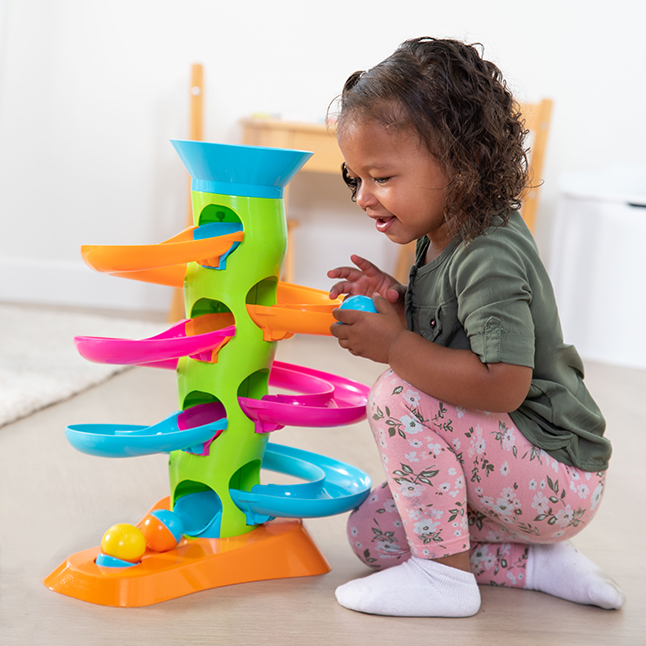
Top Interactive Toys to Consider
Building Blocks
Building blocks are a classic choice for interactive play and fine motor skill development. These toys come in various shapes, sizes, and materials, allowing toddlers to stack, balance, and create different structures. As children manipulate blocks, they develop hand-eye coordination and improve dexterity.
Playing with building blocks also encourages problem-solving skills. When toddlers try to balance blocks or create a stable structure, they learn about gravity and spatial relationships. This type of experimentation enhances their cognitive abilities while reinforcing fine motor skills.
Parents can choose from various building sets, including wooden blocks, foam blocks, and magnetic building tiles. Each option offers unique tactile experiences, helping to engage toddlers further. Furthermore, since building blocks can be used repeatedly in different combinations, they provide endless hours of creative play.
Play Dough and Clay
Play dough and modeling clay are excellent tools for strengthening fine motor skills in a fun and engaging way. When toddlers squish, roll, and shape dough, they exercise their fingers and develop grip strength. This physical activity is essential for improving dexterity and coordination.
Additionally, play dough encourages imaginative play. Children can create objects, animals, and characters, which allows for both individual and cooperative play. As they mold and shape their creations, they practice control and precision with their hand movements.
Parents can support this creative process by providing various tools, such as cookie cutters, rolling pins, and small sculpting tools. These accessories create opportunities for toddlers to explore different textures and improve their motor skills further. Play dough is a versatile and enjoyable way to foster fine motor development while allowing children to express their creativity.
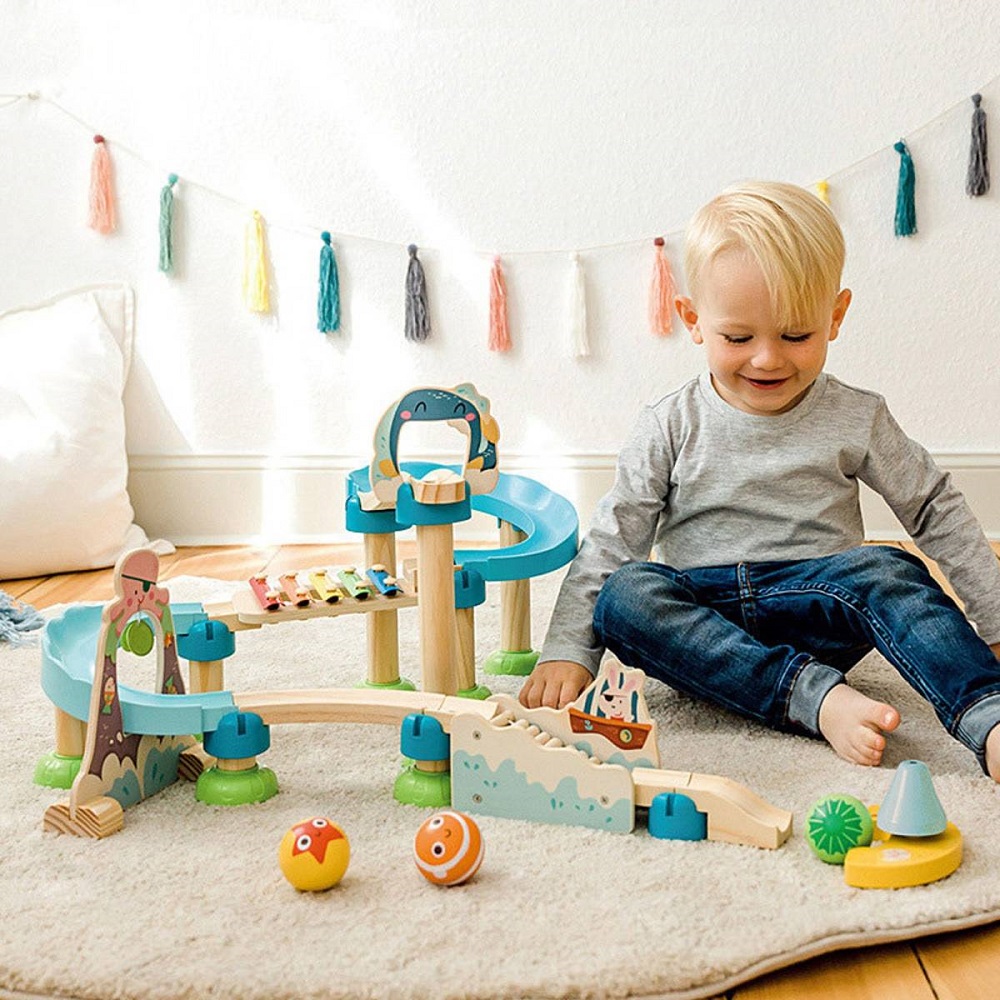
Fine Motor Skill Development Through Art
Crayons and Coloring Supplies
Art supplies, such as crayons, markers, and coloring books, are fantastic for promoting fine motor skills. When toddlers grasp crayons and make marks on paper, they strengthen their hand muscles and improve grip. Coloring and drawing require control and precision, which translates directly to the development of fine motor skills.
Art is also an expressive outlet for children. As they experiment with colors and shapes, they learn to communicate their emotions and ideas freely. Parents should encourage their toddlers to create freely, without the pressure of perfection. This approach fosters creativity and allows children to explore their artistic abilities.
Choosing non-toxic and ergonomic crayons is important for safe and easier handling. Larger crayons and triangular-shaped markers are suitable for toddlers since they are easier to grasp. Providing a variety of art supplies enables toddlers to explore different techniques and styles while honing their fine motor skills.
Puzzles and Shape Sorters
Puzzles and shape sorters are excellent interactive toys that contribute significantly to fine motor skill development. These toys require toddlers to fit pieces into specific spaces, promoting hand-eye coordination and problem-solving abilities. As children manipulate the pieces, they practice grasping, turning, and positioning objects, all of which strengthen their finger control.
Many puzzles incorporate vibrant colors and engaging themes to capture a toddler’s interest. Wooden puzzles with knobs are especially great for younger toddlers, as the knobs provide easier grips for small fingers. As children successfully complete puzzles, they gain confidence in their abilities, reinforcing a sense of accomplishment.
Shape sorters offer similar benefits, encouraging toddlers to match shapes to their corresponding holes. This interaction not only promotes fine motor skills but also enhances cognitive abilities, as children learn to recognize shapes and develop spatial awareness. Puzzles and shape sorters provide endless opportunities for learning through play.
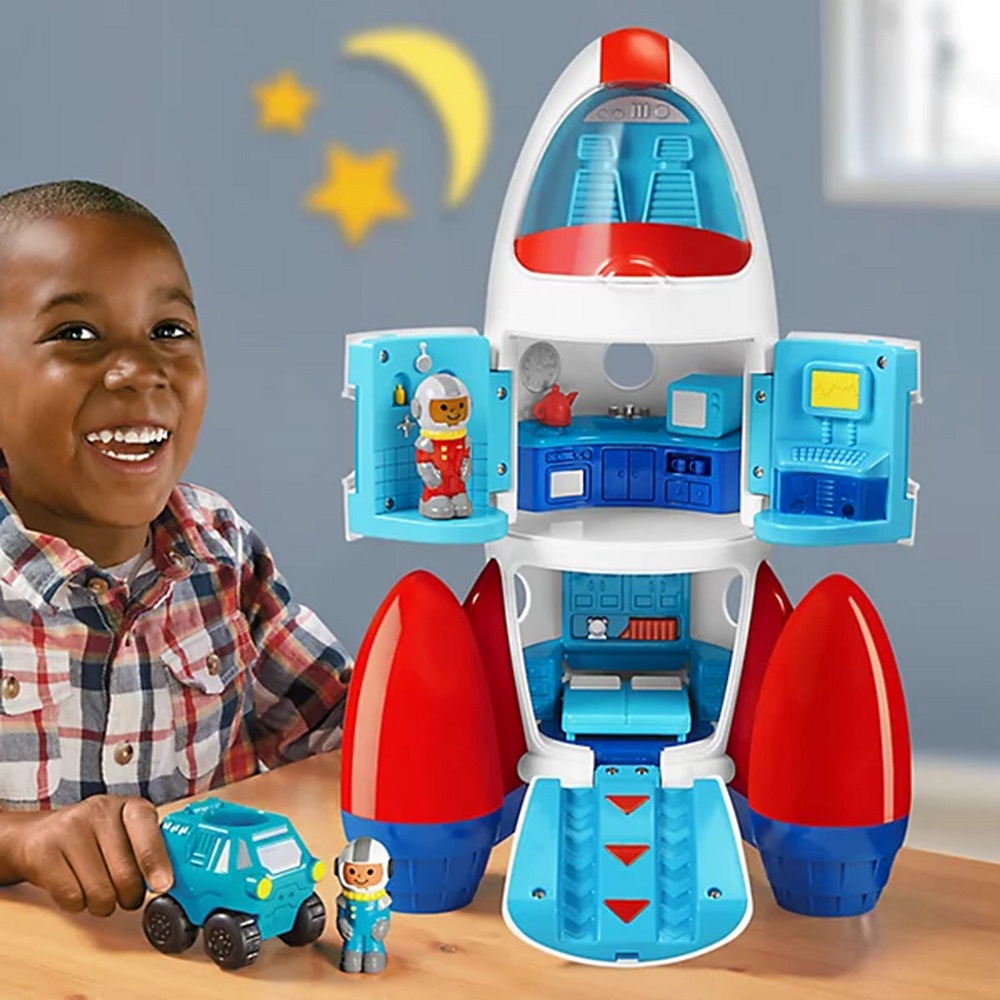
Exploring Interactive Toys
Musical Instruments
Musical instruments designed for young children provide a fun way to develop fine motor skills while encouraging creativity and self-expression. Instruments such as tambourines, maracas, and xylophones require toddlers to use their fingers and hands. As they tap, shake, and strum, they strengthen the small muscles in their hands.
Playing music also promotes sensory exploration. The vibrant sounds, colors, and motions involved in playing musical instruments can captivate a toddler’s attention. Parents can engage in musical play alongside their children, singing songs and encouraging rhythm and movement. These shared moments create bonding opportunities while enhancing motor skills.
More importantly, music can foster cognitive and emotional growth. As toddlers learn to create different sounds and rhythms, they develop listening skills and an appreciation for music. Such experiences contribute to overall development while ensuring that play remains engaging and enjoyable.
Interactive Learning Toys
Interactive learning toys have gained popularity in recent years. These toys often incorporate technology and are designed to teach toddlers through play. Examples include tablets for kids, interactive books, and toys that respond to touch or movement. While these toddler toys can be fun and educational, it is essential to choose those that also promote fine motor skill development.
Many interactive learning toys encourage children to push buttons, turn knobs, or manipulate moving parts. This type of engagement allows toddlers to strengthen their hand muscles while learning essential concepts like numbers, letters, and colors. It also enhances their hand-eye coordination as they interact with different elements.
Parents should seek out educational toys that include diverse modes of engagement, allowing toddlers to explore various learning styles. Look for toys that require physical interaction rather than passive observation, ensuring that fine motor skills are actively developed during play. Balancing technology with traditional play methods can provide a comprehensive learning experience for toddlers.
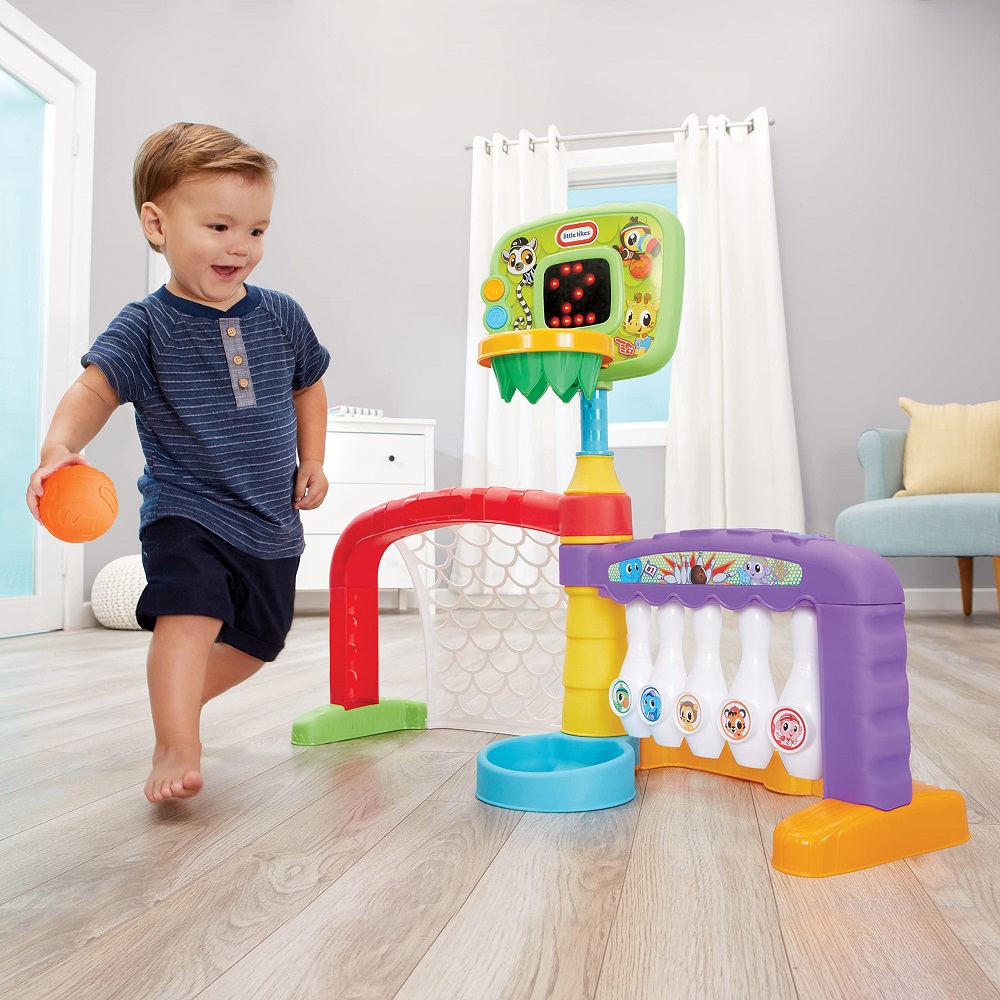
Outdoor Toys That Promote Fine Motor Skills
Gardening Tools for Toddlers
Gardening is a wonderful outdoor activity that can boost fine motor skills while introducing toddlers to nature. Many companies offer child-sized gardening tools designed specifically for little hands. These tools allow toddlers to dig, plant, and nurture their own small gardens.
Using gardening tools promotes grip strength and hand coordination. As toddlers learn to use spades, trowels, and watering cans, they also engage in sensory exploration. Feeling the soil, planting seeds, and watering plants provides a rich sensory experience that stimulates curiosity about the natural world.
Involvement in gardening can also teach children about responsibility and patience. They learn the importance of caring for living things and watching them grow. This connection with nature fosters a sense of wonder while building fine motor skills through hands-on activities.
Outdoor Climbing and Activity Sets
Climbing structures and activity sets are excellent for developing overall strength and coordination in toddlers. While they primarily focus on gross motor skills, these sets provide opportunities for fine motor development as well. Climbing, crawling, and balancing all engage the hands and fingers in various ways.
Many outdoor playsets include features that require manipulation, such as steering wheels, ropes, and knobs. These interactive elements encourage toddlers to use their hands actively, promoting fine motor skill development in a playful environment.
Parents can also facilitate outdoor play by creating obstacle courses that challenge toddlers. Crawling through tunnels, climbing over soft barriers, or balancing on low beams all contribute to developing fine motor skills while ensuring that children stay active and engaged.
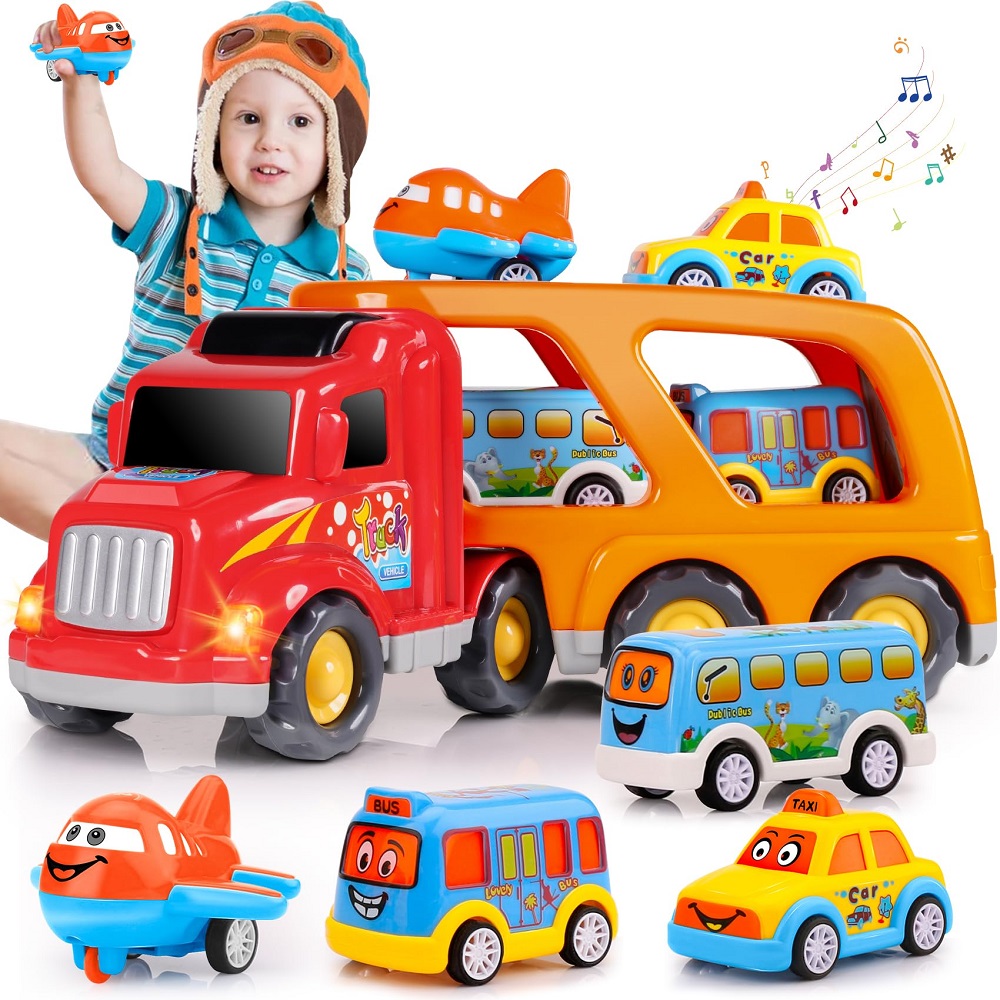
Balancing Screen Time with Physical Play
The Role of Educational Apps
While interactive toddler toys are vital for developing fine motor skills, it is important to strike a balance between physical play and screen time. Educational apps designed for young children can provide valuable learning opportunities. Many apps incorporate interactive features that promote hand-eye coordination, such as puzzles and drawing activities.
When selecting educational apps, look for those specifically targeting fine motor skills. Apps that require dragging, pushing, or tracing can encourage hand movements similar to physical activities. However, it is crucial for parents to monitor screen time and incorporate regular breaks for physical activities.
Parental involvement is key when using educational apps. Encourage toddlers to describe what they are doing on the screen or relate the experience to real-life activities. Discussing the content and exploring physical alternatives reinforce learning while ensuring that screen time remains a positive experience.
Encouraging Social Interaction Through Play
Promoting fine motor skills through interactive toys should also involve opportunities for social interaction. Playdates or group activities can encourage toddlers to engage in cooperative play, allowing them to develop social skills while practicing fine motor tasks together. Toys that encourage group interaction, such as building sets or art projects, can enhance these experiences.
Group activities help toddlers learn patience, sharing, and teamwork. For example, cooperative building projects allow them to practice turn-taking and collaboration. These social interactions not only support fine motor skill development but also help build essential life skills that will serve them well as they grow.
Creating a Learning Environment at Home
Setting Up a Play Area
Creating an organized and engaging play area at home can further enhance your toddler’s fine motor skill development. Designating a specific space for play with easily accessible toys encourages exploration and creativity. Ensure that the area is safe, well-lit, and free from distractions to facilitate focused playtime.
Incorporate a variety of toys that promote fine motor skills, such as building blocks, art supplies, and interactive learning toys. Rotate toys regularly to maintain interest and challenge your toddler. A clutter-free play area that emphasizes functionality and creativity will motivate toddlers to engage actively, enabling a stimulating learning environment.
Involving Toddlers in Daily Tasks
In addition to dedicated playtime, parents can encourage fine motor skill development by involving toddlers in daily tasks. Simple tasks such as setting the table, sorting laundry, or helping with cooking can provide valuable opportunities for hands-on practice.
When toddlers assist with age-appropriate chores, they strengthen their fine motor control and gain a sense of accomplishment. For example, pouring ingredients into a bowl or helping to mix batter can provide a fun and interactive learning experience. Through these routine tasks, they learn that everyday activities can be enjoyable and educational.
Supporting Growth Through Play
In conclusion, providing interactive toddler toys for toddlers is crucial for developing fine motor skills. These skills are foundational for future learning and independence. By selecting high-quality, engaging toddler toys that promote the development of these skills, parents and caregivers can create a supportive environment that fosters growth and curiosity.
From building blocks to play dough and outdoor activities, there are countless ways to encourage fine motor skill development through play. Balancing interactive toddler toys with screen time and everyday tasks can further enhance the learning experience. The key to success lies in making playtime both educational and enjoyable. Through thoughtful selection of toys and engaging activities, caregivers can ensure their toddlers build confidence while developing essential fine motor skills that will serve them well throughout their lives.
